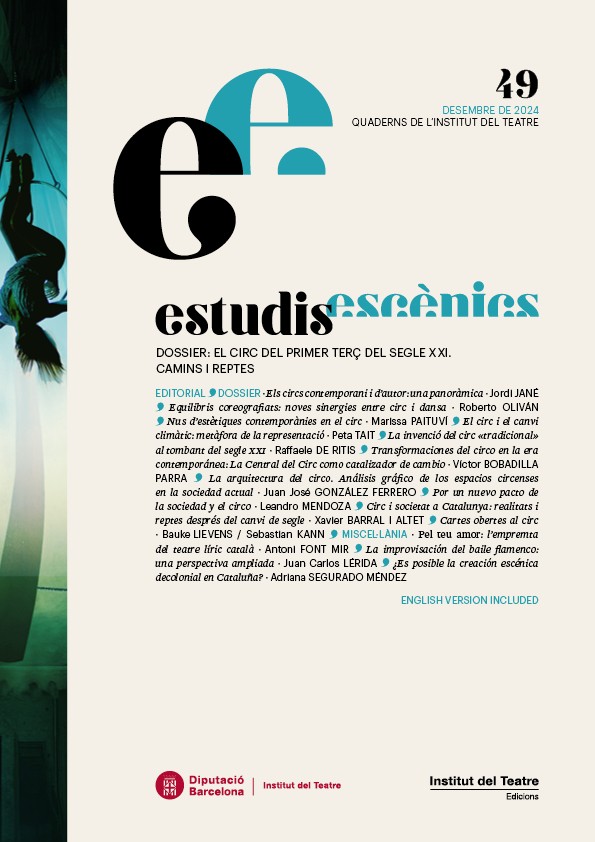Circus and Climate Change: Metaphor to Performance
Paraules clau:
Circus, Circus Oz, climate change, clown, COP.Resum
This article explores some of the ways in which circus encompasses political per- spectives and specifically climate change in the twenty-first century. The first part of the article points out that a process of expansion was foundational to the circus form historically, and that contemporary circus with a political purpose expanded on classic or traditional circus. Contemporary circus, however, often reflects and comments on social values but nonetheless remains within a broad definition of circus typified by innovation and diversity. Australia’s Circus Oz aptly illustrates a type of contemporary circus that combines acrobatic skill, comic mayhem and commentary about socio-political issues. Circus Oz productions at the turn-of- the-twenty-first century are outlined briefly to explain its longstanding socio- political approach that leads to a production on the politics of climate change. The 2019 Circus Oz production can be aligned with circus performance about climate change internationally, and notably in Nordic countries.
The second part of the article explains that circus is used in commentaries about international climate change meetings to convey negative connotations of a thwarted purpose and seemingly chaotic events. Circus is evidently being identi- fied with the classic clown act — and less obviously with risk and danger. But the significance of circus within society is layered since acrobatic skill is often masked when, for example, slapstick interactions belie an underlying precision. It is ar- gued in this article, therefore, that describing climate change meetings as circus establishes an association that actually offers the converse interpretation; circus requires disciplined action over time by the group working together. Moreover, there are recent examples internationally in which circus about climate change literally shows the collaborative process through acrobatic balance. Contemporary circus is particularly suited to highlighting contradictory emotional attitudes to climate change.
Descàrregues
Publicades
Número
Secció
Llicència
Drets d'autor (c) 2024 Peta

Aquesta obra està sota una llicència internacional Creative Commons Reconeixement 4.0.














